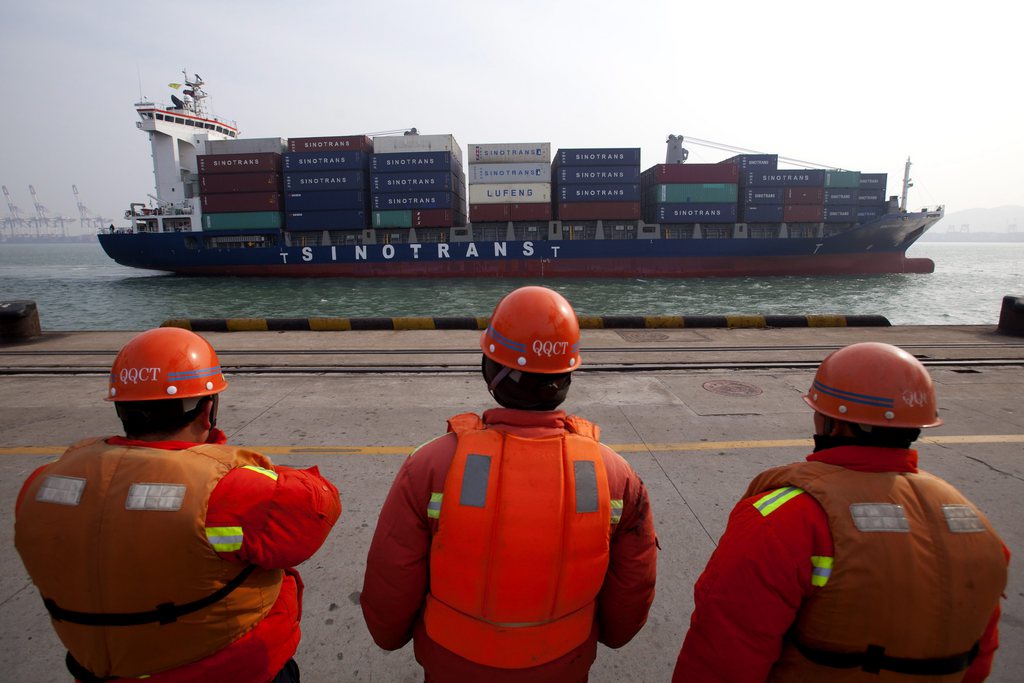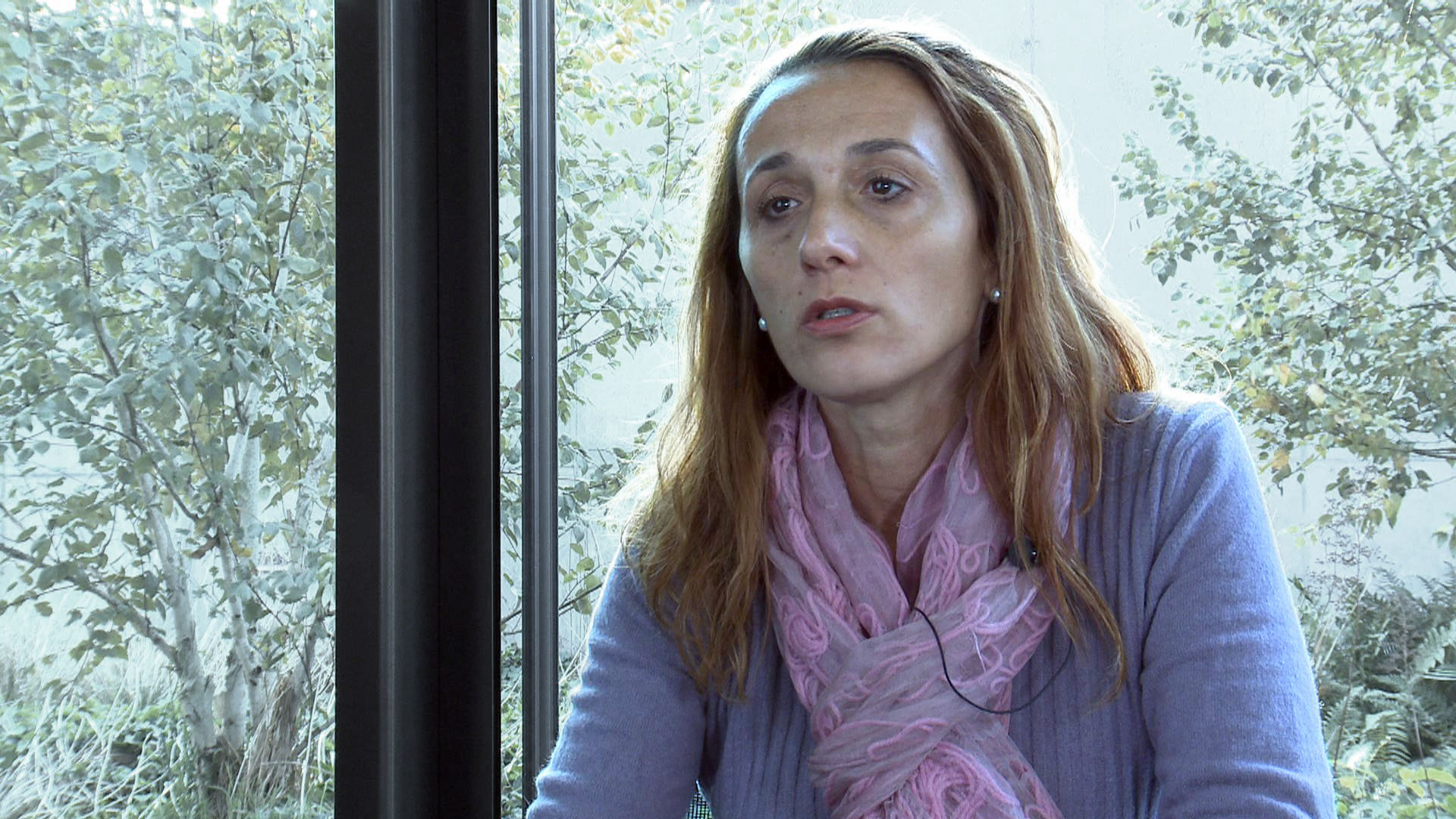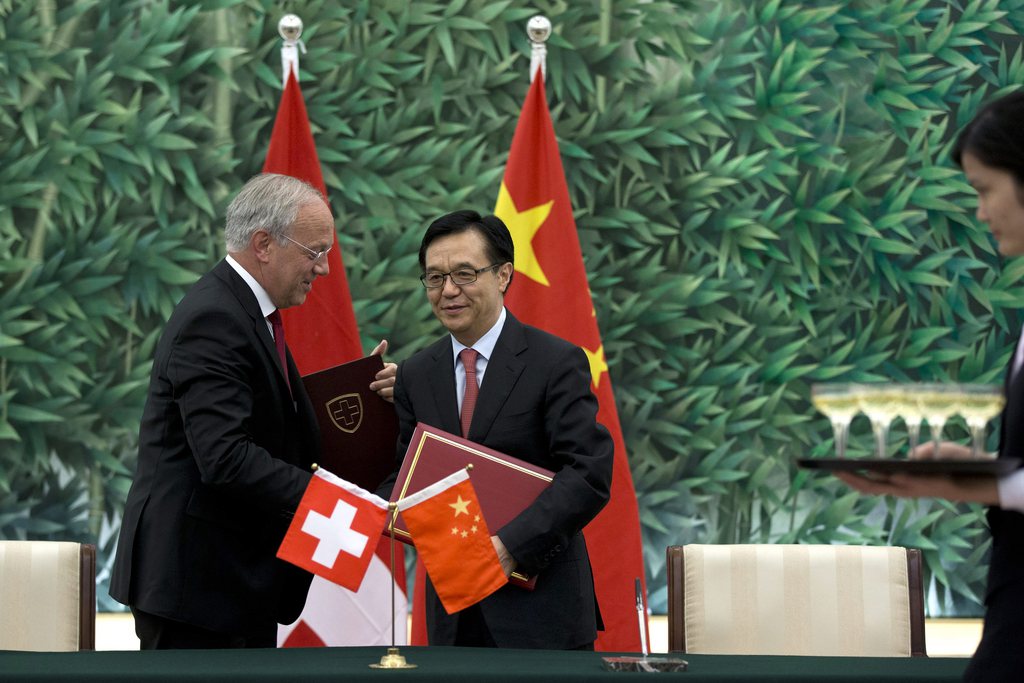China opens up to Swiss exporters

A new agreement between Bern and Beijing aims to reduce barriers to bilateral trade. It means Swiss companies will be able to export to China on favourable conditions. Yet for some, the thousand-page document contains worrying aspects.
The 1,152-page document, signed on July 6 in Beijing, opens new horizons for Swiss exporters – even some very unlikely ones. Switzerland could sell the Chinese crocodile meat, (live) monkeys or dolphins, bamboo shoots or dried coconuts. It may sound like madness, but there’s method in it.
The deal covers not just real exports, but all possible trade. So besides the typical Swiss products there are also plenty of exotic ones mentioned.
“This is a new way of designing free trade agreements, especially with Asian countries. But the substance is unchanged,” explains Christian Etter, ambassador and delegate of the Swiss government for trade agreements.
About 95% of Swiss exports to China will benefit from a reduction of customs duties, notes the Swiss Business Federation, economiesuisse. From the calculations, it emerges that the actual reduction obtained will vary considerably from one sector to the next:
– 99% for the textile industry (which represents 1.3% of Swiss exports to China).
– 78% for the mechanical and electrical industries (30% of exports).
– 77% for the chemical and pharmaceutical industries (24% of exports).
– 64% for precision instruments, watchmaking and jewellery (21% of exports).
For a whole series of products, including some measurement instruments, duties will be eliminated immediately after the agreement comes into force. But this is the exception. For most Swiss exports, duties will be eliminated only in part, and after a transition period of between five and ten years.
“China wants to protect its sensitive sectors,” notes Etter. An example is watchmaking: for mechanical and quartz models, which represent 90% of the value of watch exports, customs duties will initially go down 18%. Further reductions will be spread out over ten years, notes the Federation of the Swiss Watch Industry.
On the other hand, duties will be done away with for all Chinese products still taxed at the Swiss border, mainly textiles and shoes.
The Swiss economy is highly dependent on access to foreign markets. Switzerland has a rather small domestic market and it has no raw materials. So one of the favourite tools of Swiss foreign economic policy is free trade agreements, the goal of which is to dismantle tariff barriers and other barriers to trade.
Usually, these agreements are entered into as part of the European Free Trade Association (EFTA), which includes the non-EU members Switzerland, Iceland, Norway and Liechtenstein. But Bern has the option to make agreements outside EFTA too, as has happened in the case of China.
In the early 1990s, EFTA concentrated on countries in Central and Eastern Europe. Later its network of agreements extended to include the Mediterranean region. More recently, interest shifted to the large emerging markets in Latin America, Africa and Asia. Switzerland is currently negotiating with India, Thailand, Vietnam and Indonesia, to name but a few.
Besides its free trade agreement with the European Union, Switzerland has a network of 28 agreements with 38 non-European countries. The agreements currently cover 75% of Swiss exports.
(Source: SECO)
Easier to fight fakes
Overall, this free trade agreement with the main buyer for Swiss industrial products in Asia (and the third in the world) can only bring benefits, thinks Etter. Swiss business will be strengthened further and Swiss companies will enjoy a competitive advantage over those belonging to other states.
Right now, he emphasises, it is hard to foresee the effect of the agreement on trade between Switzerland and China (CHF18 billion ($19.9 billion) in 2012, an increase of 20% over 2011). According to a feasibility study done in 2010, Swiss exports to China (CHF7.8 billion last year) could jump by 60% or more.
Beyond the purely financial considerations, Etter emphasises another “basic” feature of the agreement. The document, he points out, is not limited to tariff barriers, but establishes a framework for promotion of investment, transparency in public tenders and above all intellectual property.
“We will be able to fight counterfeiting and piracy from the time the goods are exported,” he says.
“For companies that manufacture in China, intellectual property is better protected,” adds Henrique Schneider, who heads the department of economic, environment and energy policy of the Swiss small business federation. The Chinese authorities will have to automatically recognise patents registered in Switzerland. This will save Swiss companies from having to engage in long, onerous procedures for registration of their products in China.
The free trade agreement with Beijing seems therefore to mean a lot of advantages even at a practical and administrative level. A more detailed analysis, however, shows that some categories of products, important for Swiss business and industry, are not included in the accord.
No concession for high precision
The small business federation notes that 44% of the volume of machine tools will not benefit from any exemption. “This means in particular high-precision tools,” says spokesman Philippe Cordonier.
“We were hoping to get bigger concessions in that particular sector,” he said, adding that he was still “very satisfied” with the agreement. “A clause provides for negotiation every two years with a view to further improvements in market access.”
Farmers too are feeling a certain amount of disappointment, as pointed out by Beat Röösli, head of international relations at the Swiss Farmers’ Union.
“Our demands were taken into consideration: for example, Chinese fruit and vegetables will be able to be imported exclusively outside the Swiss harvest periods. We were, however, looking for more concessions for Swiss cheese,” he told swissinfo.ch.
Swiss agriculture’s flagship export item will not benefit from any great breaks. “Tariff barriers for cheese will only be gradually cut by a half in ten years,” Röösli notes.
In parliament, which still has to ratify the agreement, the concessions not obtained are not likely to spark any great debate. If there is ground for uneasiness, it’s not the goods, but the way in which they are produced, objects the group China Platform, a coalition of Swiss NGOs.
Human rights forgotten
The criticism by the NGOs, one of which is Alliance Sud, focuses on the lack of binding mechanisms to ensure respect for human rights in China. If the free trade agreement takes effect in its present form, basic rights will just go on being flouted, warns Alliance Sud, which is sending a strong message to parliament.

More
What importance is given to human rights?
The House of Representatives will consider the agreement on December 9. A clear majority of the parliamentary committee studying it has already given its approval. In spring, the matter will go on to the Senate. If ratified, the agreement could enter into effect by mid-2014.
(Translated from Italian by Terence MacNamee)

In compliance with the JTI standards
More: SWI swissinfo.ch certified by the Journalism Trust Initiative



You can find an overview of ongoing debates with our journalists here. Please join us!
If you want to start a conversation about a topic raised in this article or want to report factual errors, email us at english@swissinfo.ch.